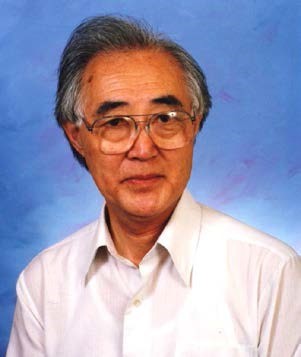
Tarow Indow
Professor of Cognitive Sciences
Professor emeritus Tarow Indow, an internationally known expert on the human visual system and semantic memory, passed away on September 22, 2007 following a month's hospitalization for a throat and lung disorder.
He was born in Tokyo on August 22, 1923. The first part of his education and career centered at Keio University in Tokyo where he received a Ph.D. in 1945 and rose to a full professorship. He married Minako Kawamura, a private high school language teacher, in 1953, and she survives him.
He held visiting positions at Harvard, the Institute for Advanced Study, and UC Irvine where he became a professor in cognitive sciences in 1979. He was one of the founding members of the Institute for Mathematical Behavioral Sciences at UC Irvine, and a frequent presenter as well as faithful attendee of Institute colloquia. A festschrift was held in 1993 in his honor on his 70th birthday. In that year, he retired but continued research activities on developing color measures in collaboration with professor emeritus A. K. Romney.
Indow is best known for his clever, unambiguous empirical demonstration that our visual space is not the Euclidean geometry of high school, as seems intuitively obvious, but rather of a curved nature. His research, reported in over 100 technical papers in major journals, covered, in addition to geometric representations of visual space, formalisms of color space and of stochastic representations of semantic memory, and ability testing.
Some of his recognitions include awards from Keio University (1961), the Japanese Association of Illuminating Engineering (1973), and the International Association of Color (1989); the Presidency of the International Color Association (1973-77); and his election in 1986 to be a fellow of the honorary Society of Experimental Psychologists.
An "exemplary scholar, wise voice, and true gentleman," Indow will be missed by the many members of the UC Irvine campus community whose lives he touched.
Barbara Dosher
Professor of Cognitive Sciences
